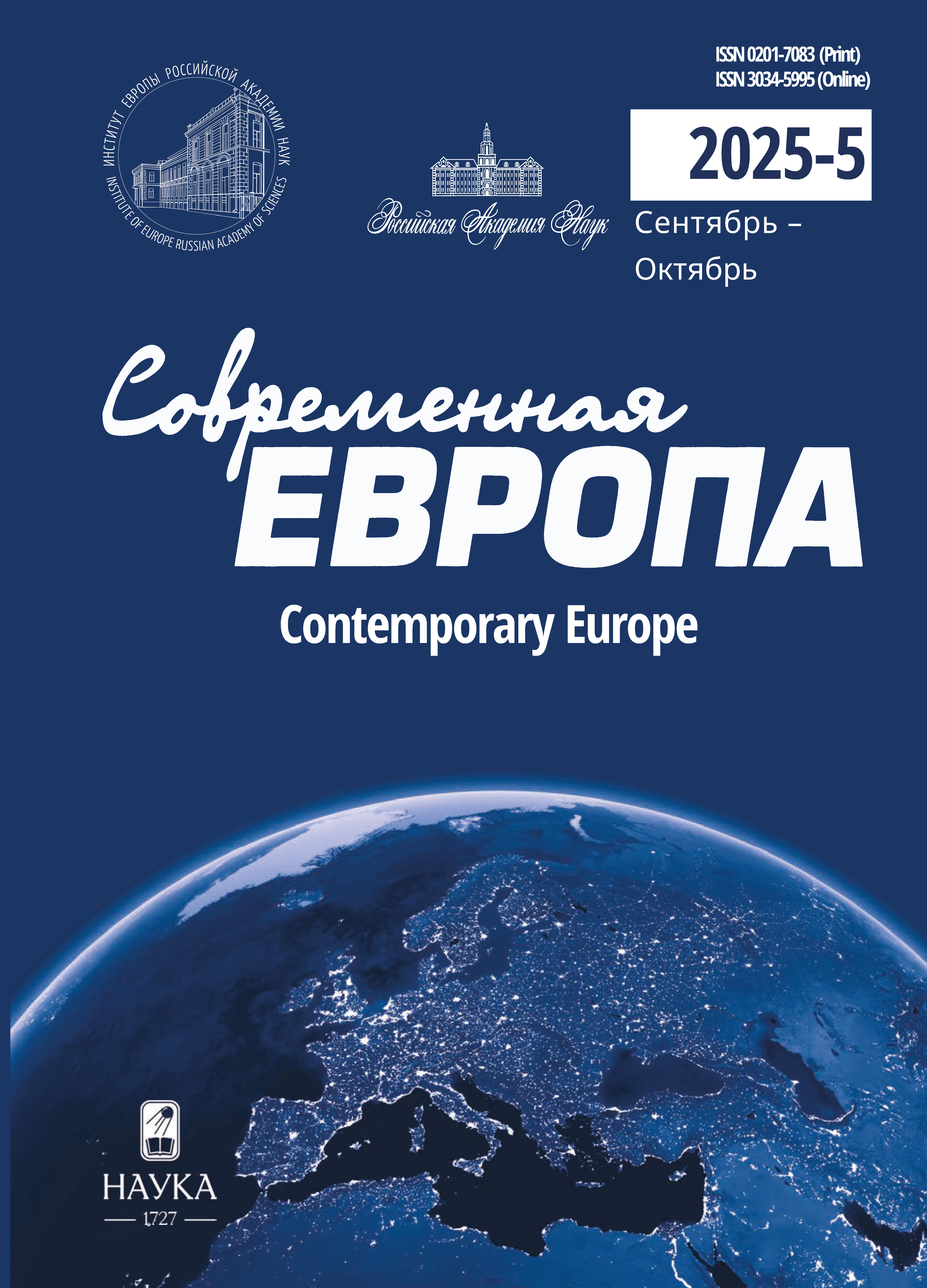EU-Turkey Relations under the D. Trump Administration: a Quick "Warming"
- Authors: Shumilin A.I1
-
Affiliations:
- Institute of Europe, Russian Academy of Sciences
- Issue: No 5 (133) (2025)
- Pages: 44-55
- Section: EUROPEAN PROCESS: COUNTRIES AND REGIONS
- URL: https://rjsvd.com/0201-7083/article/view/695685
- DOI: https://doi.org/10.31857/S0201708325050043
- ID: 695685
Cite item
Abstract
The article examines the evolution of relations within the Turkey-US-EU triangle after Donald Trump's return to the White House. During the first half of 2025, there was a significant increase in Turkey's role in the geopolitical landscape in the Eastern Mediterranean, the Middle East, and the South Caucasus. Milestones included the change of power in Syria in December 2024, Israel's efforts to weaken pro-Iranian military infrastructure in the region (Hamas, Hezbollah, Houthi forces in Yemen) and, finally, the strikes by Israel and the US on nuclear and other military facilities of the Islamic Republic in mid-June 2025. It is clear that in the foreseeable future, Israel and Turkey, which are currently in antagonistic relations with each other, will remain the dominant military forces in the area from the Mediterranean Sea to the Persian Gulf. Ankara's military role in the region is predictably being translated into political sway there. Against the backdrop of the ongoing conflict in Ukraine, Turkey's role in the Black Sea region also remains significant. Altogether, this significantly increases the EU's interest in and need for stable and mutually beneficial relations with Ankara. Add to this the "anti-European" swings of the Trump administration putting under question the stability of the transatlantic alliance. From now on, Brussels is doomed to seek new forms and instruments of interaction with Turkey — not only in the military-strategic sphere, but also across the entire long-standing agenda of their rather complex relations.
Keywords
About the authors
A. I Shumilin
Institute of Europe, Russian Academy of Sciences
Email: mideast@bk.ru
ORCID iD: 0000-0003-1778-4828
Doctor of Sciences (Politics); Chief Researcher; Head of the Center "EuroAtlantic – the Middle East"; Editor-in-Chief of the Scientific Analytical Herald Moscow, Russia
References
- Гришин Я.Я., Исламов Д.Р. (2023) Внешняя политика Турции в Европе: фактор «мягкой силы». Современная Европа. № 6. С. 96–109. doi: 10.31857/S0201708323060098.
- Оганисян Л.Д. (2024) Политика Европейского Союза на Ближнем Востоке в сб. Внерегиональные акторы на Ближнем Востоке под ред. С.М. Гавриловой, И.А. Бочарова, А.П. Корзун, Д.О. Растегаева. НП РСМД, Москва. 75 с.
- Потемкина О.Ю. (2019) «Европейская повестка дня по миграции»: итоги и выполнения. Научно-аналитический вестник ИЕ РАН. № 6. C. 80–85. DOI: http://dx.doi.org/ 10.15211/vestnikieran620198085.
- Шумилин А.И. (2023) Евросоюз и ближневосточный кризис – 2023: между ценностями и прагматизмом. Научно-аналитический вестник ИЕ РАН. № 5. С. 7–17. doi: 10.15211/vestnikieran52023717
- Шумилин А.И. (2019) Ближневосточные конфликты: европейский подход. Инcтитут Европы РАН. Москва. 122 с.
- Al-Ketbi E. (2014) Turkey: The Future of Model and Role. Abu Dhabi: EPC. 55 p.
- Cagartay S. (2013) The New Turkey and U.S. Policy. Washington: The Washington Institute for Near East Policy. 22 p.
Supplementary files











